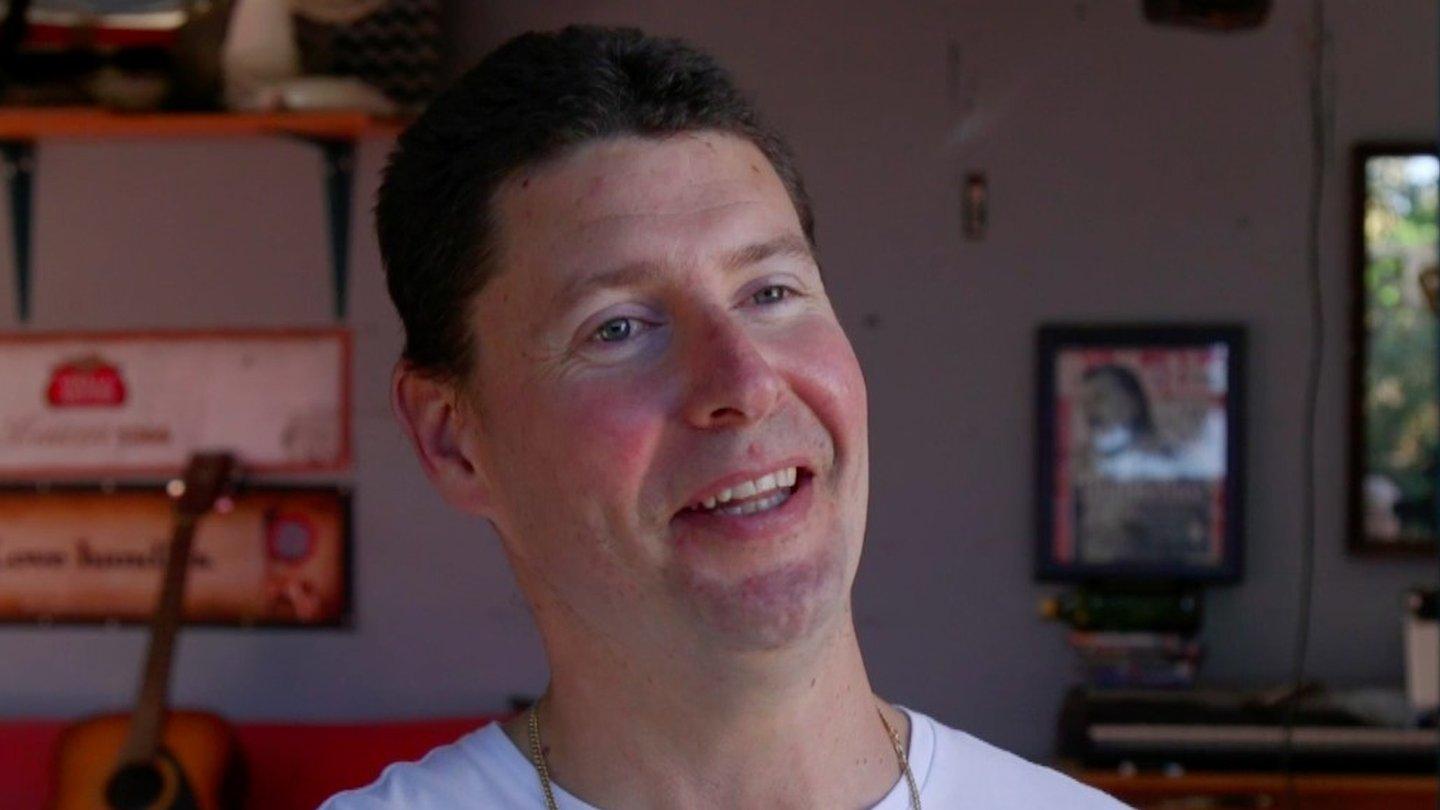Why giving alcoholics free drinks might be a good idea
- Published
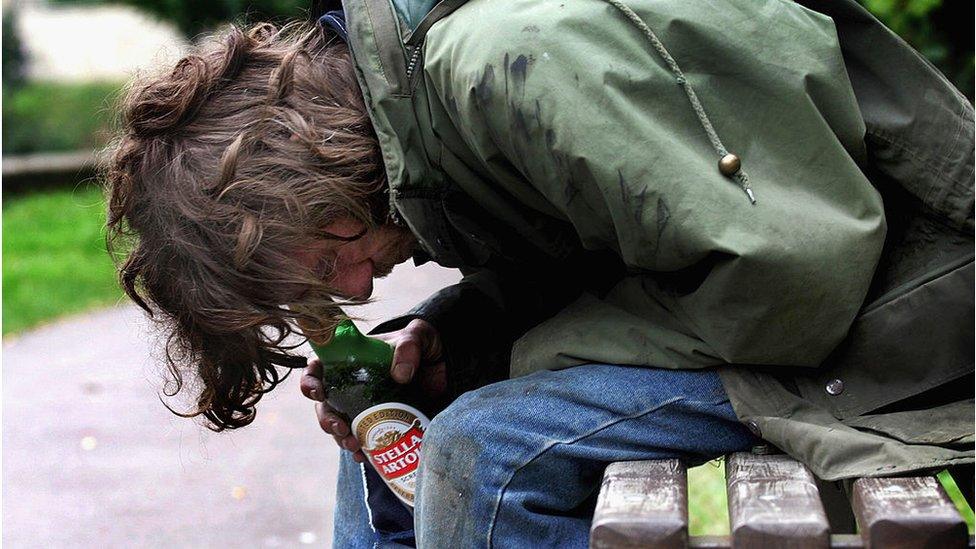
A controversial proposal in Australia would see homeless alcoholics provided with free drinks (file photo)
Addiction experts in Australia say giving homeless alcoholics access to free drinks in a managed environment could improve their lives, writes Katie Beck in Sydney.
Joe Mcgarry doesn't know whether it was alcoholism that led him to a life on the streets or vice versa.
"It's very hard to sleep at night if you aren't drunk if you are living on the street," he says.
Throughout the 1980s the tall, lumbering Irishman slept rough on London's streets, where help was hard to come by.
Homeless shelters at that time were required to turn people away if they were drunk or in possession of alcohol.
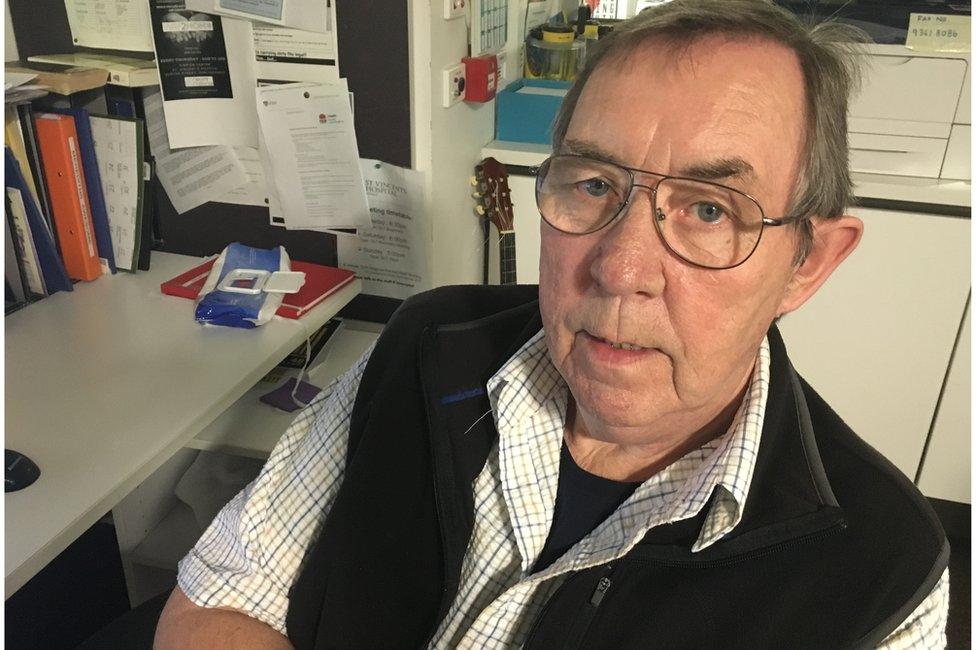
Joe Mcgarry is a reformed alcoholic who works with addicts at Sydney's St Vincent hospital
"I was a chronic alcoholic," he says. "I could not stop drinking. I didn't know how to stop."
Joe says finding a shelter that accepted him despite his drinking put him on a path to sobriety. He eventually moved to Australia and now helps addicts get clean at St Vincent's Hospital in Sydney.
"You can change once you get in there, but you can't change very much while the rain or cold - and it does get cold on the streets in Sydney - is eating away at your soul," he says.
A radical approach
In Australia, conditions attached to government funding mean homeless people generally must stop drinking before they can access long-term services.
But some experts are advocating a radical approach - giving free alcohol to addicts, up to 15 drinks a day in a managed environment.
Dr Nadine Ezard from Sydney's St Vincent's hospital is championing the counterintuitive proposal.
She says the people they are hoping to help have often been in and out of existing addiction programs - some up to 80 times - and are not getting the help they need.
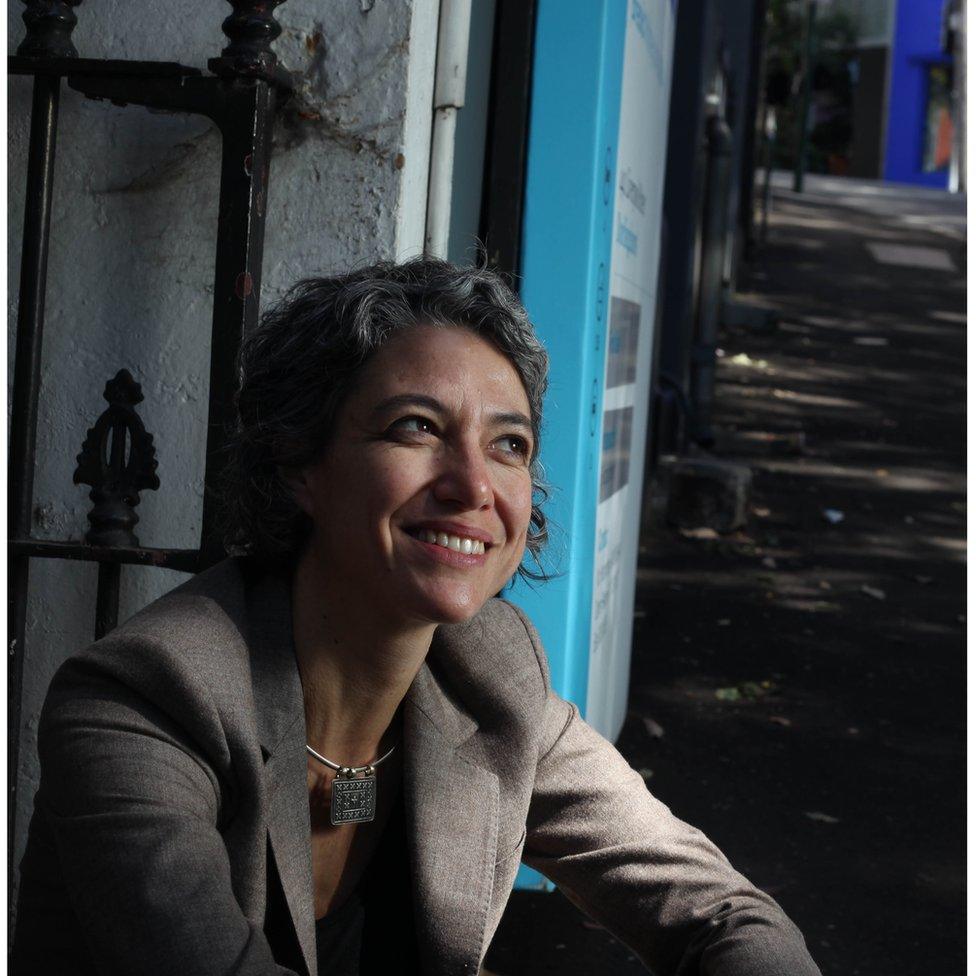
Dr Nadine Ezard is leading the push to trial managed access to alcohol at homeless shelters
"Quite often by the time we get people in their 40s and 50s, they are cognitively impaired and repeated withdrawal programs are not helping," Dr Ezard says.
The proposed Managed Alcohol Program (MAP), based on similar programs in Canada, would aim to help some of the city's most at-risk homeless residents.
According to a feasibility study completed by Dr Ezard's team, acute alcoholism effects roughly 45% of Sydney's homeless population.
St Vincent's Hospital says about 30% of the homeless patients they admit have a diagnosis related to alcohol or other drugs.
Dr Ezard says getting these people access to a place to sleep and other services would cut down on costs associated with emergency room visits, police contact, court costs and jail time.
Supporters of the plan estimate that the city could save upwards of A$30,000 (£17,000; $23,000) per person each year.
"Research from Canada suggests that once in a programme like this, health improves, or doesn't get bad as quickly," Dr Ezard says.
"Liver disease doesn't progress as fast for example. You can provide food, hygiene and homes, which promote health as well."
The Canadian experience
The small body of research on MAPs that does exist shows that providing a controlled amount of alcohol over time can also reduce the overall amount consumed by participants each day.
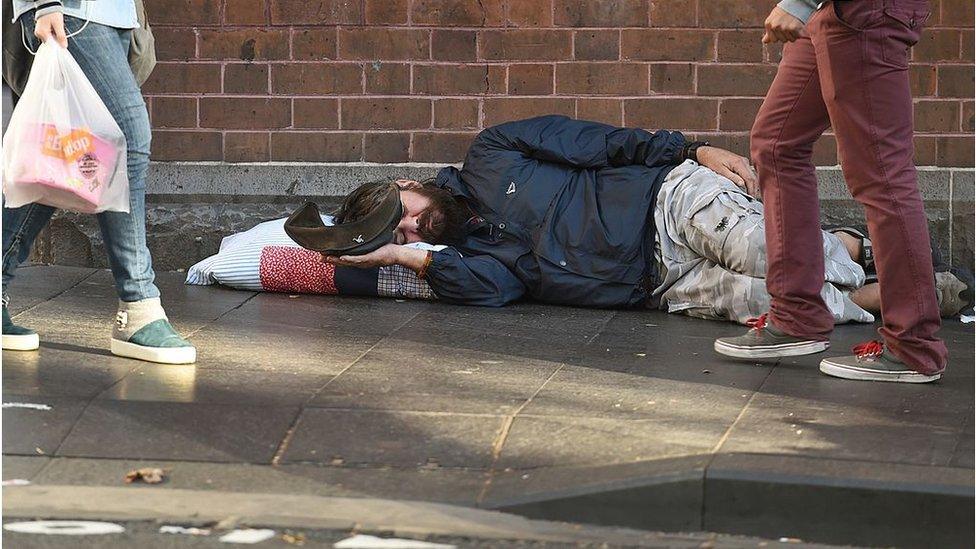
Sydney is one of the world's wealthiest cities but homelessness is at a record high
Canada is the only country that is currently running MAPs and social scientists there have been studying the impact on Canadian participants.
Tim Stockwell, director at the Centre for Addictions Research of British Columbia, has done intensive research on managed alcohol programs in Canada and he says early findings are positive.
"This is a really troubled group of people using up a lot of resources, in acute care, bouncing around between different accommodation," he says.
"There is early evidence that, for the right people, it can calm down chaotic patterns of heavy public drinking, injuries ending up in emergency care, and it enables them to maintain accommodation."
But Dr Stockwell warns that programs like these are complicated.
"What you are doing is balancing a reduction in acute problems like violence and injuries caused by alcohol, and increasing the risk of chronic illness and organ damage caused by long-term alcohol use. It's harm reduction," he says.
Hard sell
Rabbi Mendel Kastel, the chief executive of Sydney charity Jewish House, welcomes the proposal.
"We have a [homeless] refuge and we have the rules that every other refuge has that if someone is intoxicated, they can't stay and it breaks your heart to tell someone they can't stay if they have alcohol on them because there really isn't anywhere else for them to go."
But he acknowledges that there will be hurdles to implementing the plan.
"One of the biggest challenges we face is to get the community to embrace it and see that it is not about a place for wild parties and hanging out on the street, but it is a managed programme that is supervised and supported."
Convincing the public to use taxpayer money to give free alcohol to homeless alcoholics be an uphill battle. Dr Ezard acknowledges that her proposal will be met with opposition, but says Australia needs to be more creative with solutions for alcohol abuse.
"Australia used to have a very good reputation in this area of harm reduction, and I think it's slipping a bit," she says. It's time we started to think more broadly and to take that lead again with innovative strategies. We need a more comprehensive approach with drugs and alcohol."
- Published9 June 2016
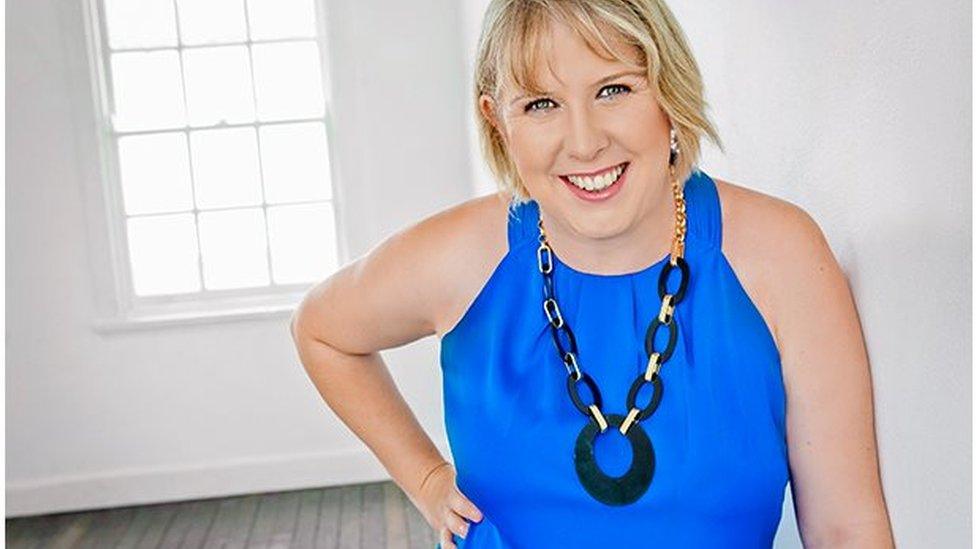
- Published3 April 2016
